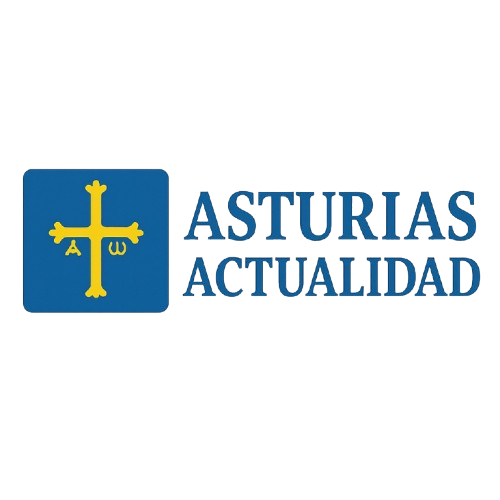
The new tool will group all relevant information about each individual related to the granting of aid by public administrations. The Government of Asturias has authorized today the signing of agreements between the Ministry of Social Rights and Welfare and local entities to launch the unique social history, a digital platform that will simplify and streamline the processing of benefits.
The full name is the electronic unique social history (HSUE, by its initials). With a similar approach to the electronic medical record in the healthcare field, it will centralize information about the benefits that each person receives from public administrations, whether at the regional, state, or municipal level.
The Minister of Social Rights and Welfare, Marta del Arco, has valued this initiative: "It is a key tool for professional coordination and assistance in social intervention, a record that will reflect the relationship that a person maintains throughout their life with the social services system."
The digital platform, which has received an investment of 2.3 million from European Next Generation funds, will be fully implemented by the end of the year. Its deployment is part of the process to consolidate a hyper-automated, intelligent, and active Administration in service of the citizenry. It also aligns with the strategy to advance in agility, in line with the Simplification Law project, approved on April 7th.
The HSUE will incorporate all relevant data about social services users and identify the professionals who assist them. It will bring clear benefits in two aspects: on the one hand, it will streamline citizen access to benefits; on the other, it will provide administrations with faster and more reliable procedures for recognizing rights and monitoring aid. In this sense, it will promote more efficient, secure, and agile management of public resources.
The initiative is a fundamental piece of the social services system, as it will make available to the staff processing benefits most of the necessary information, without each applicant having to provide it. For example, when a person requests emergency social assistance at their town hall, their economic and family data can be extracted directly from the social card, without the need to present additional documentary evidence.
At this time, municipal social services staff are already receiving training and can access, in advance, one of the modules of the platform, through which benefits such as emergency social assistance, the cash card, or home care services, among others, will be managed.
The information system will integrate, among other data, benefits such as basic or supplementary pensions, contributory, non-contributory, or welfare subsidies; temporary disability benefits, for childbirth or child care, for risk during pregnancy and lactation; family protection, minimum incomes, integration incomes, and one-time payment benefits.
New educational equipment in Avilés
The regional government has authorized an expenditure of 17,039,823 euros to hire the construction of the Integrated Vocational Training Center (CIFP) La Grandiella, in Avilés. The new equipment will be financed over three years: 545,650 euros this year, 7.89 million in 2026, and 8.59 million in 2027. It is expected that work will begin after the summer and last for 22 months.
The center – whose project was presented in March at the Avilés City Council – is designed to offer five professional families in the Services sector:
- Commerce and Marketing.
- Personal Image.
- Administration and Management.
- Hospitality and Tourism.
- Socio-cultural Services and Community.
The new CIFP will have approximately 7,500 square meters of built area. In that space, there will be 29 classrooms of various sizes, five workshops, a laboratory, and an auditorium with a capacity for 163 people, among other facilities.
The building will have almost zero energy consumption and a four-leaf green sustainability label, certifying the maximum use of natural resources and minimal environmental impact.
This month, the Asturias government has given the green light to a budget of 24 million for educational equipment in Avilés, as it authorized a expenditure of seven million on the 5th for the second phase of the School of Art of the Principality (Esapa). Public investment in educational centers underway throughout Asturias amounts to 80 million.
Expansion of the public housing stock
The government has authorized an expenditure of 2,172,829 euros for the joint contracting of the project and construction of ten public housing units for affordable rent with storage rooms and a garage in Benia, in the municipality of Onís.
The funding, partially covered by European Next Generation funds from the Recovery, Transformation, and Resilience Plan, will be distributed over two years: 1,972,070 euros for this year and 200,759 for the next. This amount includes the 81,361 euros allocated for the drafting of the project.
This work, which allows for the expansion of the public housing stock in the community, will also contribute to the development of the municipality of Onís and help to stabilize the population in its capital.
The Ministry of Territorial Planning, Urbanism, Housing, and Citizen Rights has put out to tender the construction of 600 new apartments and has committed to tendering at least another 400 throughout this year.
Termination of the expansion works at Cabueñes Hospital
The Council of Government has authorized the termination of the contract for the expansion works of the first phase of the Cabueñes University Hospital. This procedure has the favorable opinions of the Audit, Legal Services, and Advisory Council. The next step will be the final signing of the resolution by the Minister of Health, Concepción Saavedra.
The cancellation of the contract puts an end to the process initiated on January 24 by the Government of the Principality due to the non-compliances of the temporary union of companies awarded the works.
In parallel, Health has carried out various actions during this period aimed at resuming the works, now halted, so that the expansion of the Cabueñes University Hospital becomes a center of the highest level of care and research on par with the best in the country. In this regard, the public company Tragsatec is responsible for collecting the necessary technical and legal information to resume the expansion. It is also working on the topographical survey of the plot, which will allow for a precise understanding of the actions taken so far.
The Principality will finalize the final certification with the awarded temporary union of companies for the expansion works before the summer.




